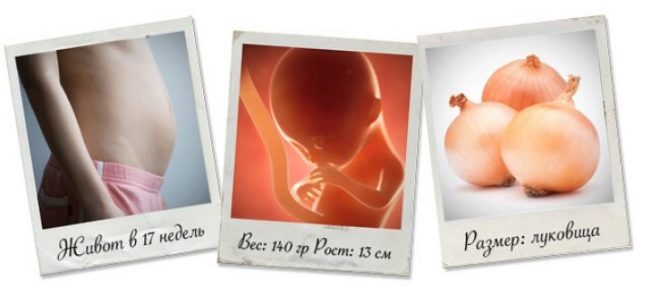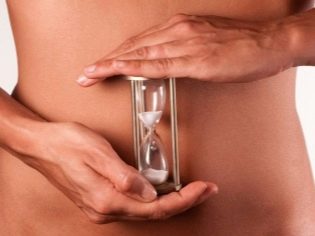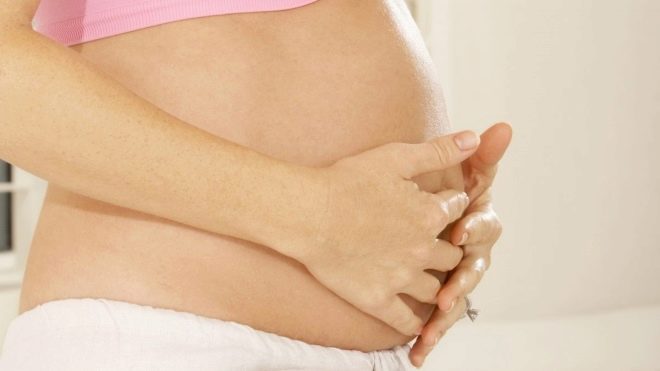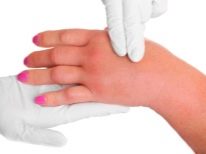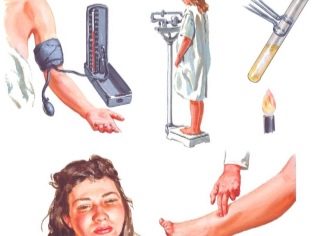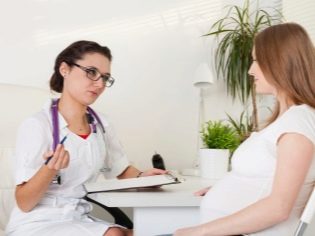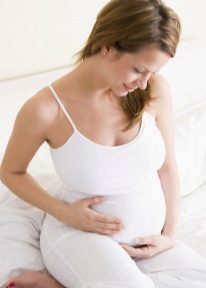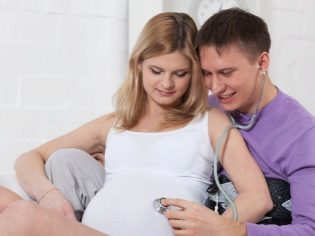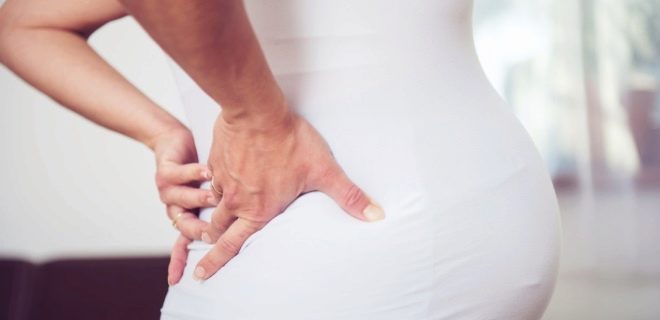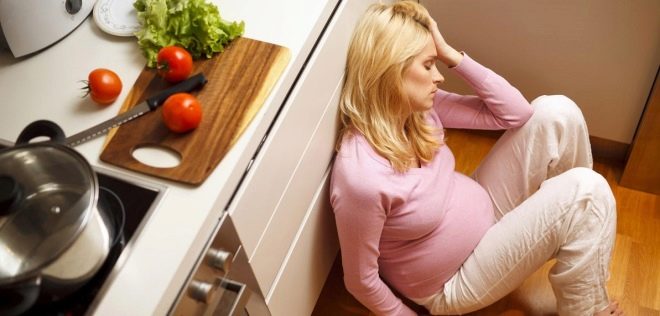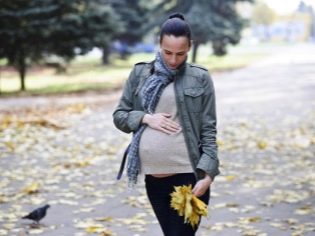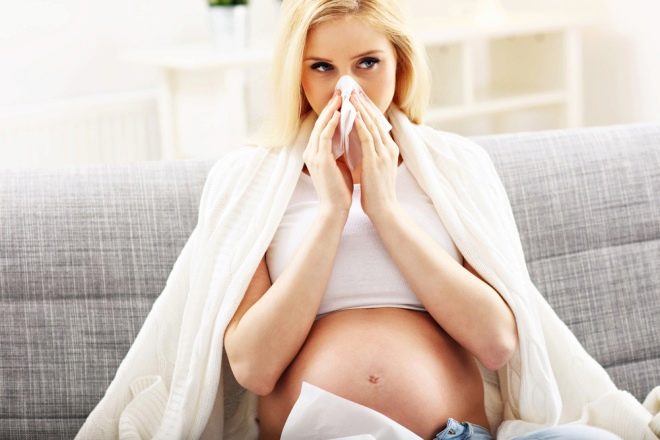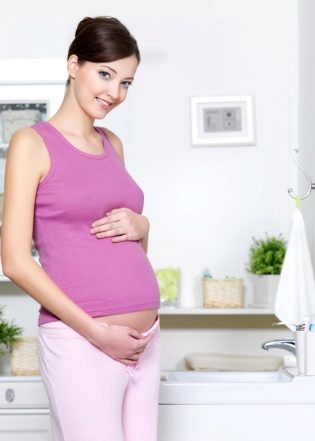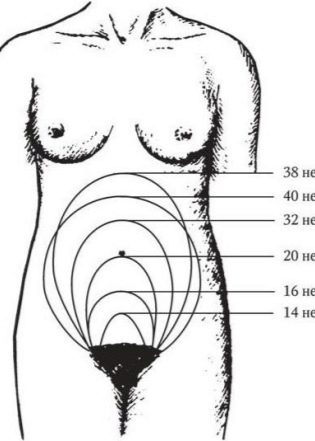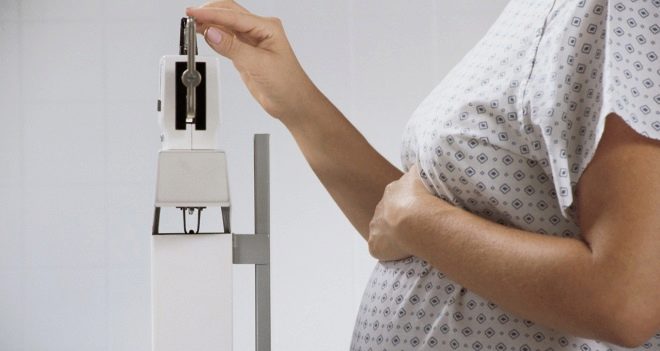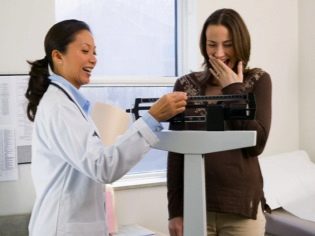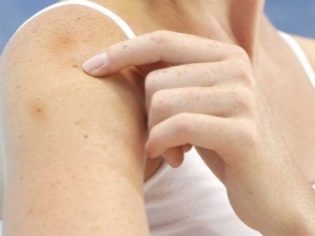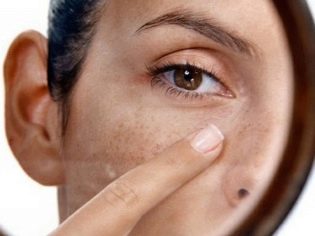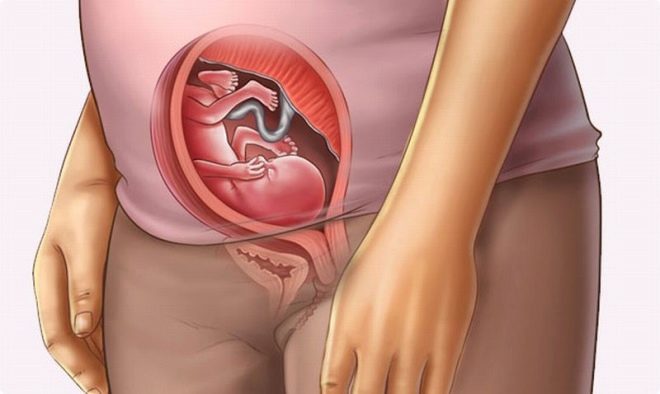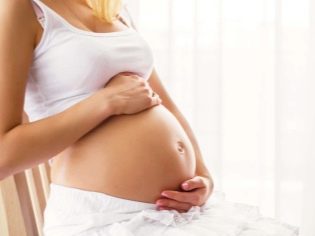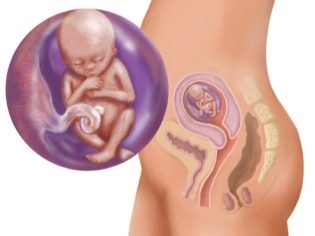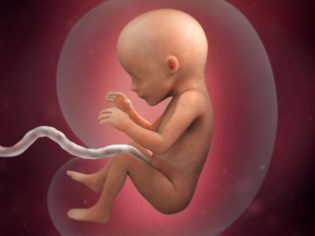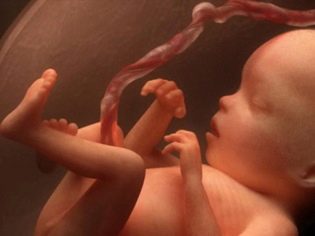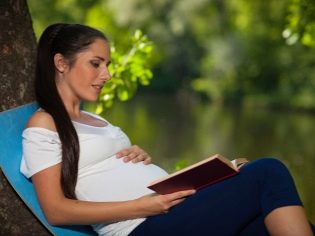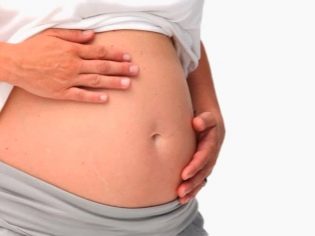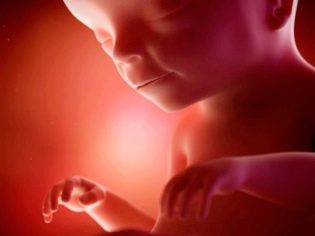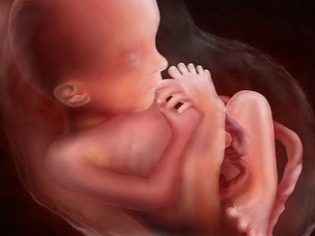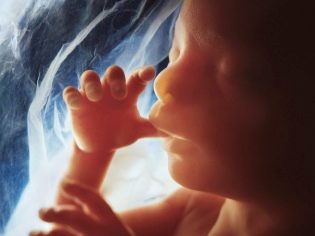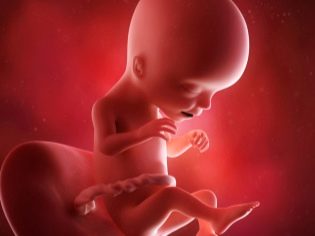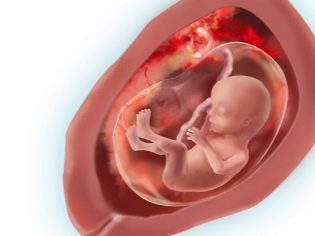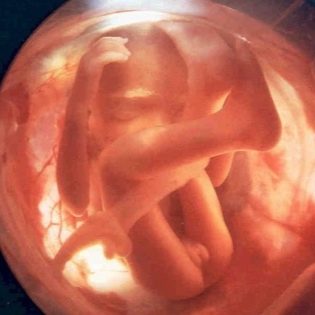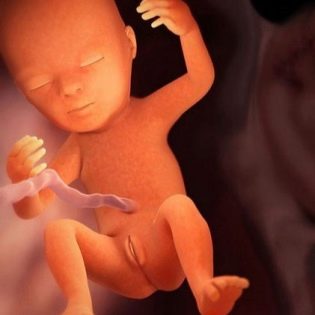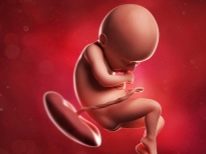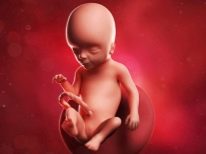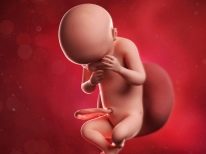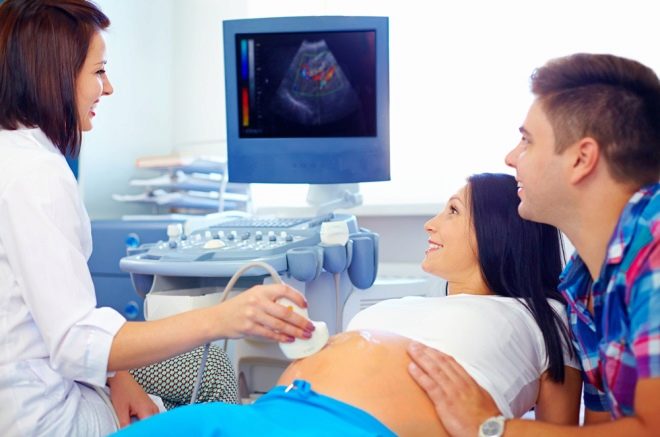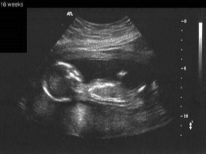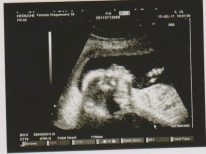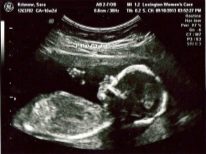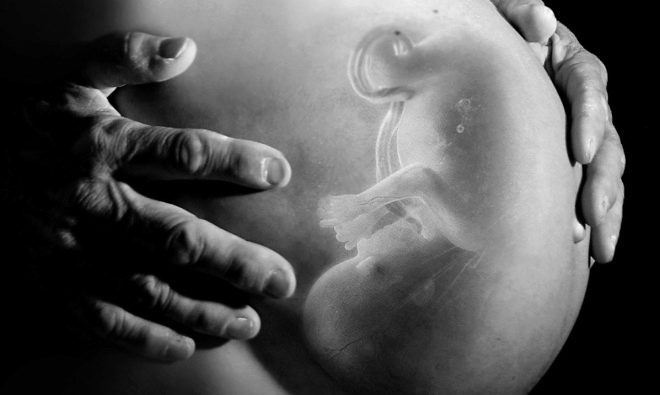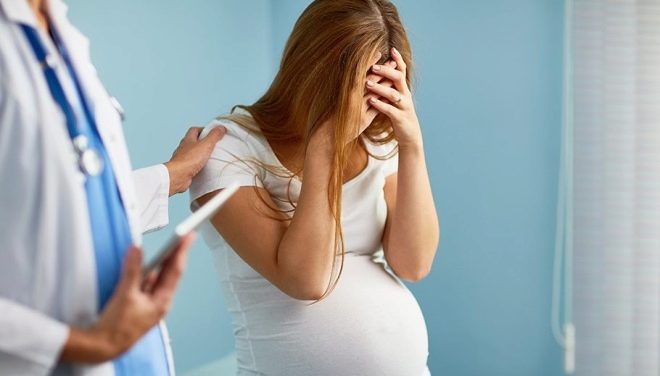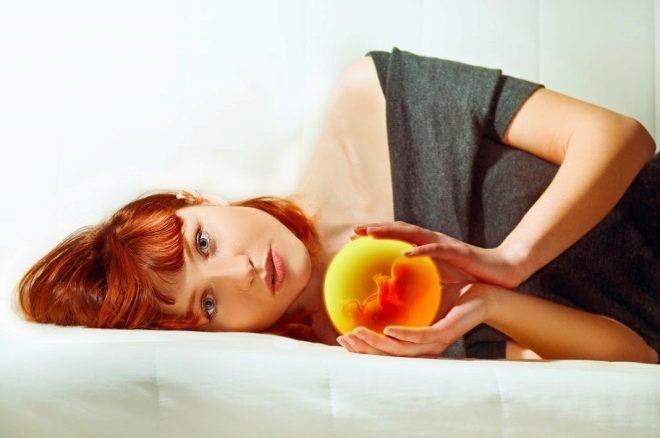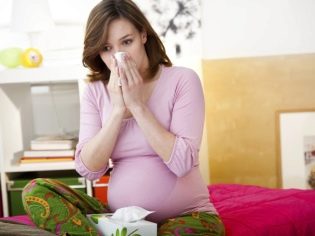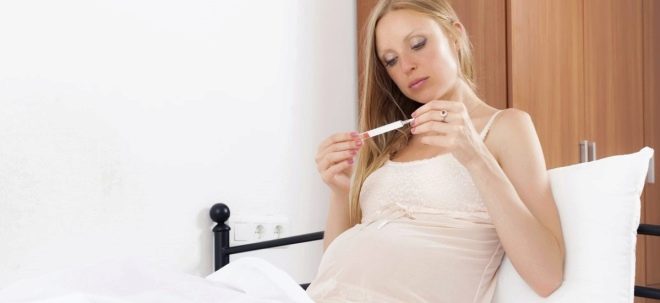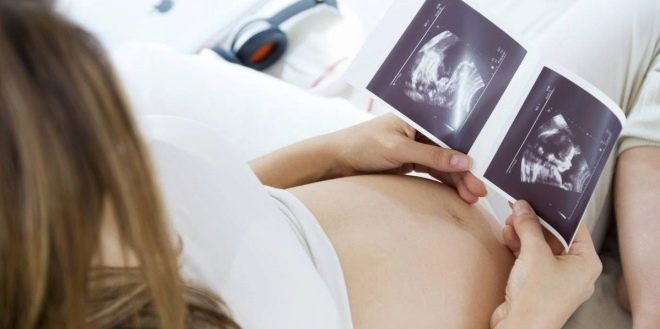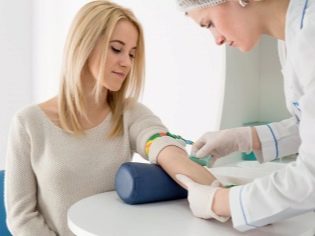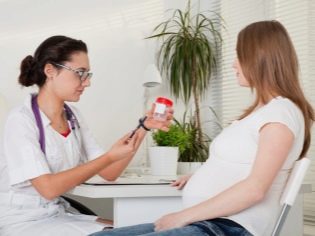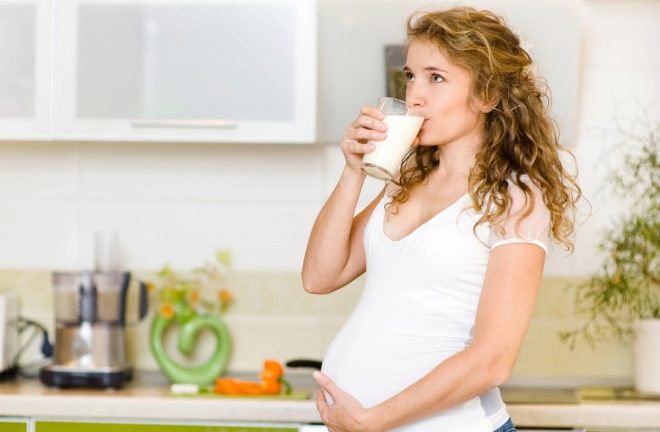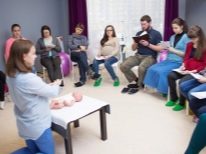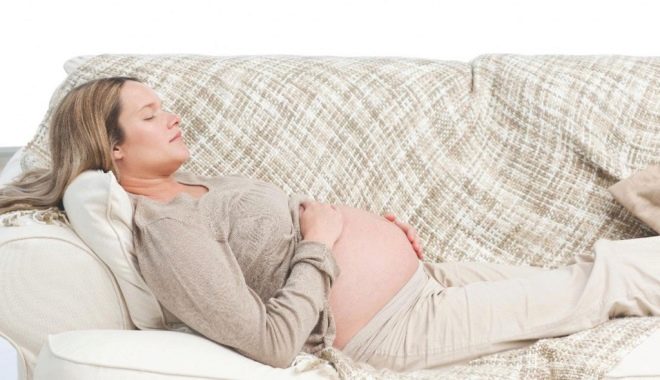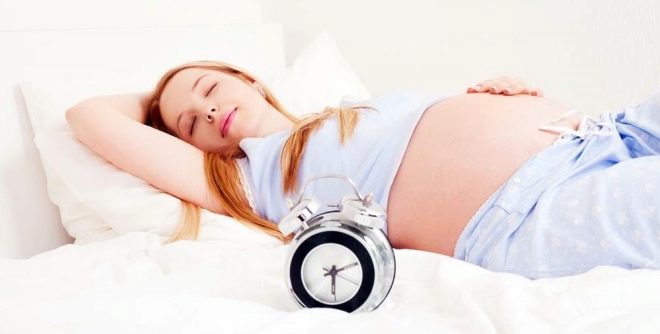17 week of pregnancy: what happens to the fetus and the expectant mother?
At the 17th week of pregnancy, women usually feel calm, their movements are measured, unhurried. Future mothers are becoming very thorough. There are practically no reasons for unrest, all risks and dangers of the first trimester have been successfully passed. During this period, a lot of interesting things happen to the baby and his mother. About this we will tell more.
How many months is it
If you count on the usual conventional calendar, then the woman is now in the fourth month of pregnancy. However, obstetric months are different from calendar months. In a calendar month, there may be 30 days, and 31 days, and even 18-19 days, and in obstetric - always strictly 28 days or exactly 4 weeks.
17 week of pregnancy by obstetric standards measured from the beginning of the last menstruation. Consequently, this is 15 weeks from conception, more than 90 days have passed since the beginning of the delay. The fifth obstetric month began, the "equator" of pregnancy is rapidly approaching - its golden mean.
Speaking of week 17, it is understood that a woman has now full 16 weeks, so 16 weeks and 3 days, 16 weeks and 4-5 days is all 17 weeks of pregnancy. 16-17 weeks is the second trimester.
Feelings of the future mother
Feelings at week 17 can be different, in general, they are quite pleasant and not burdensome.
Appetite
Women do not complain of appetite at week 17: it is usually good, and for some it is even too good.
At this time it is important to be very careful with the diet: do not overeat, do not eat at night, do not get enough before bedtime. Extra pounds, which will surely appear with such nutrition, obviously will not benefit the mother and baby.
Food "quirks" gradually cease to torment a woman. If during the first trimester she wanted only cranberries and cucumbers, now such pronounced strange food combinations are no longer so necessary for a woman, and she can begin to plan a normal, balanced diet, if for some reason she hasn’t done so before.
Fetal movements
The beginning of the 17th week of pregnancy for a third of multiparous women is usually associated with an important milestone - a feeling of baby's movements. Women who have already experienced the joy of motherhood, as a rule, well distinguish such movements within themselves and do not confuse them with the movement of intestinal gases.
Women primiparous may still not feel anything. If the pregnancy is first, then the movements usually begin to be recognized by the expectant mother at about 20 weeks, but there may be exceptions, for example, in thin and slender girls the fetal movements begin to be recognized earlier.
It’s not easy to answer the question of how the first movements of the baby are felt. Usually women describe this sensation as a light touch from the inside, a movement of a fish or a butterfly. There are no shocks and coups right away, because the baby is not yet so big as to push and kick in the uterus - it is spacious for him and touches its walls infrequently.
Toxicosis
For most women, the first trimester toxicosis has already ended: they are not nauseous, there is no vomiting in the morning, smells that are perceived very unpleasant a few weeks ago and caused nausea attacks are calmer. This is due to the fact that the pregnant woman’s body has accumulated a sufficient amount of hormones necessary for the preservation and continuation of the carrying of the child.
Now, the production of progesterone, for example, has slowed down, and HCG has completely subsided since the 13th week of pregnancy. As a result, the state of health has noticeably improved.
However, it is on the 17th week of pregnancy that some expectant mothers may show the first symptoms of late toxicosis, which is also called gestosis. Guessing about it will be more difficult than early toxicosis, since preeclampsia rarely manifests itself with nausea and vomiting, its main signs are edema.
If the puffiness is visually distinguishable (the wrists of the hands, ankles, face in the morning swell, lips swell, the shape of the nose changes, the favorite worn shoes are pressed, the wedding ring is not removed), then there will be no problems with the diagnosis.
It is much more difficult to recognize internal edema when fluid accumulates in tissues. You can guess about them by pathological weight gain, as well as by the presence of protein in the urine. That is why It is important not to ignore the urgent requests of the attending physician to pass urine before each visit to the antenatal clinic for an appointment.
Psychological and emotional state
The woman has already fully adapted to her new status - the pregnancy is obvious to everyone, you don’t need to hide anything. The anxieties that previously no-no, and even experienced moms have overcome, are now gradually receding. A woman has more confidence in her own abilities and capabilities that will surely allow her to give birth and raise a small person.
Most women admit that they are now in a certain euphoria: they want to contemplate natural phenomena for a long time, their thoughts are slow, there is increased distraction and forgetfulness. People often call this phenomenon “brain edema of pregnant women”. There is some truth in this comparison, because under the action of hormones, there is indeed some swelling of the mucous membranes, but this is not what “inhibition” triggers, but the processes that occur in the brain under the action of hormones: progesterone, estrogen, hCG.
Inhibition begins to prevail over excitation with good goals - to protect the growing small organism from the negative impact of the outside world. If the mother is less emotionally perceive everything that happens to her, the child will be calmer.
Striking mood swings, capriciousness and tearfulness by week 17 usually recede, and now the woman herself and her loved ones can rest and gather strength before the difficult third trimester. The sleep of women, which has recently improved, may become worse again this week, but now it’s not because of the hormonal changes in the future mother’s body, but due to the fact that it’sn’t easy to sleep because it’sn’t necessary to choose a suitable posture in a dream - growing belly does not give much freedom of choice.
Many women now, more than before, are beginning to need help and attention from their loved ones, relatives, and friends. Husband and other households should remember this, but do not turn care into hyper-care, because a woman can still do a great deal herself, and for the time being she needs psychological and emotional support. It is important for her to feel that she is loved.
Pain and common complaints
There should be no pronounced pain during normal pregnancy for a period of 16-17 weeks. But minor slack and aching pains can occur, and they have a very good reason: the uterus grows, and with it the ligaments that hold the main reproductive female organ grow and stretch.Because of this, women complain that the back and back hurt, their legs are “buzzing”, especially in the evening.
The load on the lower extremities increases every day, because the weight increases, the uterus increases, the center of gravity changes. Besides the fact that from time to time a woman pulls her lower back, she can have short, sharp shooting and tingling inside - this is a consequence of pinching of the nerve ganglia. The woman already feels the uterus very well, movements cease to be light, more and more often you have to choose a posture for comfortable sitting and lying down.
Frequent urination this week is unusual. Hormonal background has become more stable, and the uterus is not large enough to squeeze the bladder. If now the woman again begins to frequent the toilet for a small need, then you should pass urine for analysis. She may have worsened problems with the urinary system against the background of pregnancy.
Headaches no longer plague a pregnant woman. With the alignment of the balance of hormones, they no longer annoy.
If the head hurts at week 17, then this is a good reason to measure blood pressure. If a woman is elevated, then she should definitely inform your doctor.
Among digestive disorders, diarrhea and gas formation, which often tormented a woman in the first trimester, now occupy far from the first place. At the leading position go constipation. The musculature of the intestine under the action of hormones is relaxed, which causes disturbances of peristalsis, "stagnation". Also a strong heartburn can disturb a woman.
Dizziness this week may accompany a drop in blood pressure. The decrease in blood pressure on the walls of blood vessels is normal for the middle of pregnancy, because the amount of circulating blood in the body of the future mother has increased significantly, there is another cycle of blood circulation - the uteroplacental. If your head is spinning rarely and briefly, you should not worry.
If the attacks of dizziness are accompanied by loss of consciousness and nausea, you should contact your doctor and ask for treatment of symptoms of hypotension.
Gait
From this week, all pregnant women, regardless of body size and weight, begin to walk especially - “duck-like”, slightly waving. This is due to the fact that the uterus went into the abdominal cavity, and the load on the legs increased. The woman now walk "from the hip" fails, no matter how hard you try. The body adapts to the changed center of gravity, trying to create the most comfortable and safe conditions for movement.
Gait "duck", despite the apparent absurdity, men like very much. Right now, the husband of the future mother can begin to show more attention to her and surround her with care, because the unhurried and wallowing spouse really looks very touching.
Runny nose
The difficulty of nasal breathing in the early stages happens often. At the same time, runny nose exists separately, there are no other symptoms of a cold or other disease. Such rhinitis is called physiological, as it is associated with the effect of progesterone on the mucous membranes. By week 17, the physiological rhinitis usually recedes.
If now a rhinitis has appeared for the first time, and the woman feels a general malaise (headache, sore throat), then she probably has acute rhinopharyngitis, which has nothing to do with the physiological rhinitis of future mothers. Consultation with a doctor in this case is required.
Changes in the body
Externally, the woman is changing very dynamically: the waist is rounded, the hips have become wider, the tummy can no longer be hidden, except in very spacious clothes.
Uterus size
The height of the uterus bottom this week makes a sharp "jerk" forward. If a week earlier it was only about 12-13 cm, now the WYR is from 14 to 19 centimeters. As the belly grows, the uterus is already in the middle between the pubic bone and the navel line.The length of the cervix on average ranges from 40 to 45 mm, shortening it is considered an alarming symptom, A “short” neck needs to be provided with qualified medical assistance — stitching or an obstetric pessary so that a woman can carry the pregnancy through to the end.
If a woman has a second or third pregnancy, the uterus stretches and grows somewhat faster, the tummy appears more clearly than in primiparous women. The future mother can now already feel the borders of the uterus, as they clearly appear.
Weight gain
It is very important to control your increase in this period. Many pregnant women do it daily and write the results in a pregnancy diary. Daily weighing is optional. It will be quite enough to weigh in on the same day, for example, on Monday or Wednesday, once a week.
At week 17, lean girls may find that they have recovered by more than 4 kilograms. Such an increase for them is perfectly normal for the current term. Women with a normal weight and a slight excess of it at week 17 should normally add no more than 3.5 kilograms to their initial weight before pregnancy. Fat women whose body mass index implies obesity should not add more than 1.8 kilograms.
Weight gain is inevitable, but it should not go beyond the limits of norms by more than 100-200 grams.
If the increase is higher, you should visit the doctor ahead of schedule to eliminate the likelihood of developing preeclampsia and get recommendations on nutrition correction.
Chest
The mammary glands are no longer sick, because their growth is now not as intense as before. The chest now continues to grow slightly in size, so you may feel that it is scratched. Now it is very important to wear a special bra with wide supporting straps. This will avoid stretch marks on the chest and ease the load on the back - walking will become noticeably easier.
If at the 17th week colostrum is excreted from the breast, there is nothing strange in it. It does not need to be squeezed out if it soils clothes and underwear - it is worth changing the bra to the breast for nursing mothers (there are special places for absorbing liners).
Discharge and sweating
Many women at this time begin to sweat more intensely, and also note that the vaginal discharge has become more abundant. This is completely normal, so the pregnant woman's body reacts to a new hormonal background. Sweating, of course, is not a very pleasant phenomenon, but it is perfectly amenable to hygienic correction. Discharge, if they do not have an unusual color, impurities of blood, "flakes" and streaks, do not need any treatment.
The appearance of green or brown discharge at this time may indicate the presence of an infection, and white discharge with an itch can “signal” the manifestation of thrush. Normal discharge is light or slightly yellowish, odorless or with a barely visible sourish odor, homogeneous.
Pigmentation
This week, the face, back and hands of a pregnant woman can “bloom” with bright freckles, if she has a tendency to such a phenomenon, or become covered with pigment spots of various sizes. This is also a variant of the norm, because the synthesis of melatonin in the body increases.
There is no need to “remove” such stains, there is no medicine or cosmetic from them. Pigmentation will disappear some time after birth.
The development of crumbs
This week, the baby becomes the first placenta for the first time - now its weight is 115-160 grams, and it grows up to 17-20 centimeters. It can be compared with a large elongated pear. He is no longer an embryo, and from week 17 he is increasingly beginning to resemble a newborn.
Appearance
Soon with thinness, which is now inherent in the baby, will be finished. This week, he begins to produce the first subcutaneous fat.But immediately feel the difference will not work - the process of deposition of subcutaneous fat is quite long, so for now the crumb continues to look very thin and very shriveled. Thin as parchment, the skin forms wrinkles all over the body except for the face.
As the fat layer accumulates, it will thicken, stop being transparent, bright red and shriveled - everything will smooth out and become rounded.
Body crumbs covered with fluffy hair, which is called lanugo. They are colorless and very thin. Their appearance - a sign of the beginning of the hair follicles. Together with the original lubricant, which now also covers the entire body of the crumbs, for the time being, lanugo will protect the delicate thin skin from the effects of the aquatic environment. By the time of birth, lanugo disappears, but some children are born with its remnants and get rid of it in the first weeks after birth.
The head of the child begins to acquire normal proportions and outlines, the bones of the skull harden, the neck appears, which already does an excellent job with its functional duties: the kid turns his head, can hold it straight. In the embryonic period this was not available to him.
The features of a small face are already individual, they clearly traced daddy's nose or mother's lips, on a three-dimensional ultrasound, you can already try to see if the angle is comfortable. All parts of the face are fully formed.. The facial and maxillary muscles are very well developed, so the kid does not skimp on a variety of faces, grimaces and smile, though most of them are involuntary muscle contractions during the formation of the nervous system.
The legs and arms grow, they become more proportionate with each other, whereas previously the arms were much longer than the lower limbs. There are nails on small fingers, they grow constantly, and on the finger-pads an individual unique pattern has already formed - prints. Many babies have a head of hair on their heads at the current time - their hair is thin and not colored, until the pigment that will color them is not produced.
Sense organs
All the foundations for the five senses in a child are laid, most are already functioning. So, the ears, the formation of which was completed a few weeks ago, already occupy their place. The outer part of the auditory analyzers - the auricle - is exactly the same as in adults, only very small. The inner ear continues to evolve, so the hearing of the child is now based on the perception of vibrations that create sound waves of different ranges and frequencies. At week 17, the familiarity with the world of sounds expands somewhat: the inner ear begins to pick up and convert the first sound waves into signals.
This process will take about another 2-3 weeks, very soon the child will hear exactly the same as all people hear, but only with the amendment to the fact that he is still in the water. The fact that perception is now more vibratory in nature does not in the least prevent the baby to perfectly distinguish the voice of mother from the voices of strangers, and the familiar sounds from strangers.
Therefore, reading fairy tales, singing lullabies and talking with the little one now is not just possible, but necessary.
There is no vision yet, although all structures of the eye and optic nerve are formed. Eyeballs are covered with already divided into upper and lower eyelids. Now, through thin eyelids, the crumb is able to catch only a bright light. Soon he will learn to open his eyes and blink. At week 17, the eyes of the fetus begin to make quick movements under the eyelids. This is how oculomotor muscles train, supporters of physiology say. And most neonatologists claim that this is how a baby reacts to first dreams. What a little man dreams of, no one will say, most likely, this is his usual habitat: the umbilical cord, mother’s voice, his own feelings.
The little one has well developed tactile abilities, he perceives.He learned to distinguish between shades of tastes a long time ago, and now for him it is a common occurrence. But he cannot yet distinguish odors, because there is no nasal breathing, and the baby receives oxygen through the placenta from the mother's blood.
Nervous system
At week 17, the baby begins to coordinate well the movements of the hands and head, both individually and in combination. Now he can begin to suck his cam, not because he accidentally ended up in the mouth, as it was before, but quite consciously - simply because he wanted to. At the current time the cerebral cortex is most actively developed. Gray matter consists of six layers, and some of them have already formed. This week, the baby can safely "boast" the first furrows and gyrus.
The development of reflex connections continues. Now the crumb demonstrates the instinct of self-preservation: when external circumstances change (for example, with a loud, sharp sound), it becomes frightened and shrinks into a ball. He knows how to suck, swallow water, push off legs and handles from obstacles, for example, from the wall of the uterus, if he swims too close to them. When liquid enters the mouth, it can not only swallow it, but even spit it out.
Internal organs
The placenta is fully formed, now its thickness is on average 19.4 mm. The crumb is closely tied to it by a reliable and elastic umbilical cord, its length is almost 0.5 meters, and its diameter is more than 2 centimeters. It is the placenta that now provides the baby with everything he needs: nutrients, minerals, oxygen. Her maturity is 0.
Practically all organs function normally: the kidneys produce urine, the stomach contains swallowed water, the intestines contract, the liver participates in blood formation and digestion, and the heart pumps more than 23 liters of blood per day. The heartbeat of the baby is easily heard now through the most ordinary stethoscope, and now the obstetrician-gynecologist at each visit will listen to him through the front abdominal wall of the mother. The heart rate on average ranges from 150 to 170 beats per minute, which is almost 2 times the frequency of the mother's heartbeat.
The gallbladder produces bile, part of it enters the intestine. It is due to bile that the original feces, which will be deposited in the rectum, will be painted in a dark green, almost black color. The pancreas produces insulin, the thyroid produces thyroid-stimulating hormones, and the endocrine, sweat and sebaceous glands function properly.
Sex determination
Gender is completely defined, organs are formed, the probability of getting an exact answer from an ultrasound specialist to the question of what sex a child is at week 17 approaches 90%. True, for this the baby must be located comfortably, intimate places should be available for inspection by an ultrasonic sensor.
Girls develop a little faster than boys. They already have sex glands - the ovaries - have descended into the small pelvis. In boys, the sex glands - the testicles - are still in the abdominal cavity, they will start to descend into the scrotum very soon, and this process should normally be completed by childbirth. But only boys have their own sex hormones - they produce testosterone. In girls, while estrogens are not produced, they have to be content with maternal hormones, which are now in the pregnant woman’s body enough.
Ultrasound Mistakes in Determining Gender This Week Are Rare. The boy is more difficult to confuse with the girl, but with the little princesses anything can happen - the umbilical cord clamped between the legs is often mistaken for the penis. Less often, there are especially “shy” boys who heal their masculine “dignity” between the legs, and he is mistakenly considered a daughter. With good visualization on the modern apparatus, the probability of error is minimal.
What can a baby?
To the previously acquired skills this week, the baby adds more movements.Now he sleeps a little less than before and is actively doing something while awake. He plays with the umbilical cord. Now he not only squeezes her in the cam, but can also twist on his arm. As the legs grow older, the crumb begins to catch them and try to drag them into the mouth. This skill newborn will be demonstrated for quite a long time after the birth.
Your son or daughter already knows how to indulge and yawn, spit and write, swallow water, hiccup, squirm disgruntled mines, if he does not like the taste of water. He is actively studying the sounds coming to him, as well as the noise background of the mother's body: the sound of her heart, the work of the intestines, the sounds of blood flow. The little one loves to feel herself, and also touchingly embraces herself by the shoulders in a dream. The twins, by the way, at this time begin to embrace each other in a dream, as evidenced by ultrasound images.
Baby on ultrasound
Mandatory diagnostic study of ultrasound at week 17 is not considered. A woman will go to the second prenatal screening of an ultrasound scan a little later, but for the time being there may be other circumstances for the scan: the emergence of a threat, atypical pains, strange discharge.
Also, a woman has the full right to visit an ultrasound diagnosis office of her own will, for example, in order to determine the sex of the child or find out how it grows.
Fetometric data speaks about the growth rates this week - the main dimensions that are subject to mandatory measurement during the procedure, regardless of the purpose for which the expectant mother came to the ultrasound examination room. For week 17, typical parameters are:
Head and tummy of the fetus at 16-17 obstetric week
Gestational age | BPR, mm | LZR, mm | Head circumference, mm | Circle bellymm |
16-17 week | 34-38 | 45-50 | 124-135 | 102-112 |
The length of the bones of the limbs at 16-17 obstetric week
Thigh length (DBK), mm | Shin Length (DKG), mm | The length of the humerus (WPC), mm | The length of the bones of the forearm (DCT), mm |
20-24 | 18-21 | 18-21 | 15-18 |
Bones of the nose at obstetric week 17
Gestational age | Average rate, mm | Valid range, mm |
16-17 weeks | 5,4 | 3,6-7,2 |
Ultrasound diagnostic examination this week allows you to set the location of the fetus, the height of the “children's place” relative to the internal os, the length of the cervix, determine the uterus tone, if any, and evaluate almost all the internal organs of the child. It is still not easy to make diagnostic conclusions about the correctness of the formation of the lungs and brain - their formation is not yet complete.
Other organs are examined carefully and carefully. KTR (coccyx-parietal size) of the baby is no longer determined, because the child has grown noticeably.
Hazards and risks 17 weeks
Now the woman does not want to think about the possible risks, because the first trimester is already far behind the full of anxiety, and I want to relax. Indeed, the likelihood of threatened abortion is now minimal. But to minimize the risks, to consider them mythical can not, because they are quite real. The slightest change in the state of health of the pregnant woman should be a reason to immediately consult a doctor.
And do not be afraid in the eyes of others to look alarmist, in matters of preserving pregnancy is better to be safe. What are the dangers that may threaten the future mother and baby?
Fading Pregnancy
Week 17 refers to the critical period for the risk of fetal death. Science is still completely unknown the true reasons why the baby simply ceases to develop and dies. This can happen at any time up to 28 weeks. However, doctors noticed that there are three most risky periods: 3-4 weeks, 8-10 weeks, and then 16-18 weeks of pregnancy.
Guessing that the irreparable happened, a woman can change her state of health. Some symptoms of pregnancy per se may disappear. If the expectant mother has already begun to feel the movements of her child, then the main sign of a non-developing pregnancy is a complete cessation of the movements. If there is no movement yet, and there is no or no toxicity at all, then it will be very difficult to guess that the fetus is fading.
The corresponding diagnosis is established on the basis of ultrasound diagnostics. The doctor does not detect signs of a baby’s heartbeat, does not register motor activity. To save in this situation, unfortunately, the baby is no longer possible. A woman is subjected to mechanical cleaning of the uterus, and fetal tissue particles are sent for genetic research to try to find out if any genetic or chromosomal abnormalities have caused the death.
After a stalled pregnancy, the chances of conceiving and normally carrying and giving birth to a baby are high, simply pregnancy will be considered from the very beginning complicated by obstetric history. Control over the woman will be more thorough, tests and examinations for her will be appointed according to the expanded list.
Hemorrhoids
Impaired blood circulation in the lower veins, including in the hemorrhoidal, often leads to the development of hemorrhoids in the second trimester. This ailment is very delicate, and women are often embarrassed to talk about it. However, concealing or treating hemorrhoids in the second trimester is not worth folk remedies, otherwise the likelihood of the disease becoming chronic becomes great.
Modern pharmacology can offer a sufficiently large number of medications for the treatment of pregnant women, especially since in the second trimester there are significantly more such drugs than in the first.
But to be treated independently is dangerous for the child and mother! It is imperative to consult a doctor and together choose a certain drug or several drugs in the complex therapy.
Preventing hemorrhoids and curing it at the initial stage will help prevent constipation. To do this, the diet of a pregnant woman should be a sufficient amount of raw vegetables and fruits rich in fiber. Be sure to drink enough water, keep a moderately active lifestyle, do gymnastics, walk on foot.
Viral infections
The risk of contracting influenza or ARVI is always there. But at 16-17 weeks it is the highest. This is explained by the fact that the immunity of a pregnant woman by this week is critically reduced. From the first minutes after the conception of the hormone, progesterone does everything possible so that the embryo, and then the embryo, is not threatened by anything, including maternal immunity, which by mistake can perceive the embryo as an alien element and reject it. As a result, immunity begins to be suppressed.
By week 17, physiological immunosuppression reaches its maximum, and the woman's body is simply unable to resist even the well-known viruses. Therefore, getting sick now is easier than ever. But this should not scare the woman - the placenta is already protecting the baby, so there should be no serious consequences.
The most dangerous factor for a cold or a viral illness is high fever. If it exceeds 39.0 degrees, it becomes unsafe for the state of the placenta and uteroplacental blood flow. Properly reduce fever, relieve symptoms of fever with the use of antipyretics. Now, many of them, with the exception of aspirin, other drugs based on acetylsalicylic acid, are already allowed, but treatment should begin with the consent of the doctor.
Currently, it is possible to resist even more formidable diseases and complications, for example, sore throat - let's say antibiotics, such as "AmoxiclavOr Flemoxin. A pregnant woman should not take any medications without a prescription.
Digestive problems
Indigestion or heartburn is most often accompanied this week by women who have not yet been able to resolve the issue of the organization of proper nutrition. But also those who try to eat in a balanced way, often in small portions, may face such troubles as constipation, diarrhea, heartburn.The internal organs, including the organs of the digestive system, are already beginning to feel the pressure of the growing uterus, and therefore their work is somewhat disturbed.
The acidity of gastric juice may change or any chronic illness that has already taken place, for example, colitis, cholelithiasis, gastritis, peptic ulcer, may worsen.
Women who have a predisposition for such diseases now need a consultation with a gastroenterologist and a special diet.
Analyzes and surveys
At week 17, the first stage of the second prenatal screening begins. This survey will be conducted differently than it was in the first trimester. Now there is no need to donate blood and do ultrasound strictly in one day. Blood is taken for research this week or next, but it will be sent to the ultrasound scan a little later, after 20 weeks.
Now the woman has to donate venous blood for the so-called "triple test." It will determine the concentration of chorionic gonadotropin (hCG), free estriol and alpha-fetoprotein. According to the quantitative content of these substances, it will be possible to calculate the estimated risks of congenital chromosomal abnormalities, as well as to suspect possible anomalies of the neural tube. Laboratory data will later be supplemented by ultrasound scan results.
Of the remaining tests, only a general urinalysis can be scheduled for week 17, if the woman has another attendance at the doctor’s appointment.
Recommendations to expectant mothers
A woman can significantly ease the period of childbearing, if she is careful and attentive to her own health. It will also come to the aid of simple and accessible recommendations. This week, in general, they remain the same as before: walks on foot far from polluted city highways, taking vitamins and minerals, and a healthy lifestyle are useful for a woman. Some of the tips need a separate explanation.
Proper nutrition
Do not assume that all pregnant is prohibited. Pregnancy is not a disease, so it does not require strict diets. But a woman must adhere to important rules: do not overeat, do not eat at night, do not eat that which will not benefit the child. In order not to overeat, it is enough to reduce the usual portions of about one and a half times, and increase the number of meals to 6 per day.
Before going to bed, in order not to suffer at night with thoughts about the contents of the refrigerator, you can make a small snack - fermented milk products, apple, kiwi are perfect for this.
Foods that do not benefit the child are all fried and pickled, fatty, and also over-salty and sweet.
Your diet should be built on meat, fish, milk, cereals, cereals, fresh vegetables and fruits.
If you want sweet, it is better to replace cakes and cakes with cream for Turkish delight or good marshmallow. A piece of salted fish will also not cause problems if the woman knows the measure. The amount of salt on this period is better to limit to 5 grams per day - this will help avoid edema.
Sex
Having sex on this period is possible, if there are no obvious contraindications. In case of problem pregnancy, the doctor will necessarily warn that the woman should limit sexual activity. If gestation is good, then intimate pleasures are even useful: an orgasm improves blood supply to the uterus, and emotions of a sexually satisfied woman will definitely benefit her.
It is important for spouses to remember that now is not the time for bold experiments in bed.
Pose must now be chosen more carefully, avoiding such postures at which deep, hard penetration occurs.
The missionary posture also becomes inconvenient, because the tummy already interferes. Now you should not practice anal sex, the use of lubricants. It is important to remember that the occurrence of any pain or unusual discharge after sex - a reason for immediate treatment to the doctor.
Bath, sauna, solarium
With the increase in the amount of circulating blood that a woman is experiencing right now, the burden on the future mother’s heart, kidneys and lungs has approximately doubled. It is for this reason that you should not aggravate the situation and create additional difficulties for your internal organs and systems.
Take a hot bath, visit baths and saunas at week 17 is strongly discouraged.
Sunbathing should also be severely limited, and from visiting a tanning salon, experts recommend discarding it altogether, because its effect on the body of a growing baby has not yet been fully studied. Overheating now does not lead to anything good, because the jumps in blood pressure during this period are quite dangerous.
Clothes and shoes
The clothes of the future mother, no matter what season of the year outside the window, should be made only from natural materials. Increased sweating and synthetics are incompatible. Now a woman should avoid close things, especially squeezing in the waist and hips. This not only disrupts heat transfer, but can also cause blood circulation problems in certain parts of the body.
Shoes should be worn on a flat sole or a small stable heel platform. From the "studs" and just high heels should now be abandoned. Women who are at risk of wearing such shoes in the 17th week, note that their uterus more often comes in tone. This is due to a violation of the center of gravity. Already, you can begin to wear a special bandage that will gently support the stomach from below, reduce the load on the legs and back.
Courses for pregnant women
A woman can get even more information about the period of gestation, the upcoming birth and the postpartum period on courses for expectant mothers who act on the basis of any antenatal clinic for free. Doctors: gynecologists, pediatricians, neonatologists, as well as psychologists - will tell you how to do gymnastics, how to prepare yourself for childbirth, what to do if water has diverted or contractions have begun, how to behave in childbirth, how to care for a newborn.
You can attend classes with your husband - there are many interesting things for future popes in the courses too.
Reviews
At week 17, future mothers most often discuss the topic of fetal movements. Those who have already felt them share their experience with those who still dream of feeling them. Among complaints at this time, complaints about difficulties with the choice of posture for sleep prevail. The need to turn over all night from the right side to the left side, waking up at the same time, is very painful for women who slept on their stomachs or backs before pregnancy.
Many people also note another feature of this week’s night’s rest - dreams become more vivid, memorable, there may be nightmares or fantastic color adventures. Somnologists (specialists in the prevention of disorders and the diagnosis of sleep problems) argue that now it is connected with the “ragged” rhythm of dreams.
To sleep it became more pleasant and comfortable now, you can get a special pillow for pregnant women, which will support the legs and stomach. In the third trimester, you will be able to once again appreciate all the advantages of such a device, since sleep problems will begin in the last weeks.
Often, women at week 17 claim that they have periods when they have no appetite at all, and they are replaced by periods when they want to eat everything that is bad in any quantities. The reasons for this strange behavior in the second trimester are not the vagaries of pregnant women, but an elementary violation of the diet. As soon as a woman takes it as a rule to eat at certain hours, even if you don’t really want it at the moment, her body will very quickly change to the normal routine.
You will learn more interesting facts about the 17th week of pregnancy from the following video.

